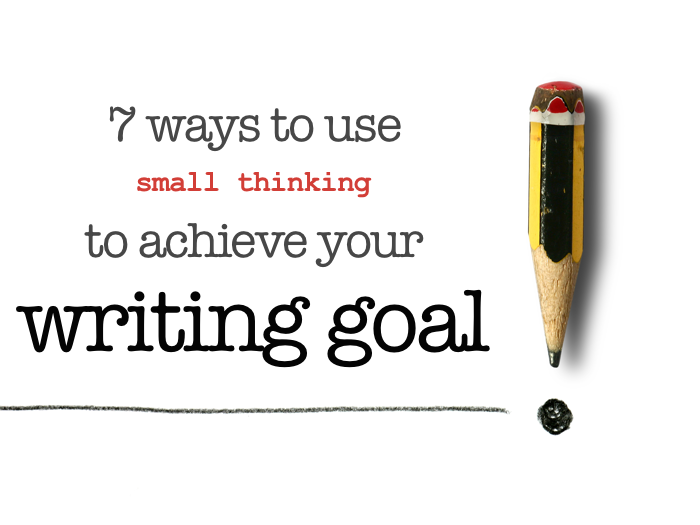How many words in a novel? Average word count for books by genre

Want to know how many words you should be aiming for? Here are the average word counts by genre.
How many words in a novel? And what about non-fiction? Size matters. You need to know the length of manuscript you should be working towards for your genre – whether fiction or nonfiction. It will help you set targets and plan your writing routine, be taken seriously by agents and publishers, help you secure a publishing deal – and meet the expectations of your readers. Here are the average word counts and page numbers by genre.
Reading time: [rt_reading_time] minutes
How many words in a novel – at a glance
- A typical novel is about 80,000 words long – but may be anywhere between 60,000 to 100,000+ words
- Know your target word length so you can pitch professionally and track your progress
- The correct word count matters especially for first novels
- To work out your rough page length, divide your word count by 275
- Different genres have different conventions and length expectations – but there are always exceptions.
How many pages?
Remember Dame Sally Markham from Little Britain? She was the prolific romantic novelist based on – well, you know who. Reclining on her chaise longue, eating truffles, she would dictate yet another novel to her long-suffering secretary Miss Grace – regularly punctuated by: “How many pages?”
While Dame Sally’s motives may have been lazily filling space with any old rubbish to meet a publishing deadline, as a writer you actually do need to know how many pages – or, rather, words – to aim for. (We’ll look at page numbers later too.) But where do you begin?
How many words in a novel?
You might think a novel can be any length you like: as long as it needs to be to tell the story. But size matters. Any author who has had their editor ask them to cut 20,000 words will tell you that there are rules and conventions around acceptable length. These depend on the type of novel, its genre – and even whether or not it’s your first novel.
But how long is too long? And when does your word length fall short?
A typical novel is about 80,000 words long – but may be anywhere between 60,000 to 100,000 words. As a general rule, you should stick well within these parameters for a first novel.
A typical novel is about 80,000 words long – but may be anywhere between 60,000 to 100,000 words.
Anything under 50,000 words is generally considered a novella. And anything over 110,000 words is usually considered too long – especially for a first novel. There are exceptions, of course. Fans of established, Booker Prize-winning novelists like Hilary Mantel will devour their latest enormous tomes. Here are some other outliers:
- Edward St Aubin’s five Patrick Melrose novels average about 47,000 words each.
- Margaret Atwood’s The Blind Assassin is over 160,000 words: twice the length of the average novel.
- Lucy Ellmann’s Ducks, Newburyport, shortlisted for the Booker Prize in 2019, is pretty much a single sentence spanning nearly 400,000 words.
In addition, certain genres – notably fantasy, but also some crime fiction – may be 150,000 words or more.
If you’re absolutely convinced that you need at least 200,000 words to tell your story, consider splitting it into two or even three novels – a publisher may be more interested in taking it on as a two- or three-book deal. And if you’re struggling to get anywhere near 60,000 words, perhaps you’re writing a novella – or even a short story. Or maybe you need a new subplot, extra characters, locations or timelines to maintain novel-length interest from your reader.
Why you need to know your target word count
You need to know the word length you’re aiming for so that:
- You write to the right length. It’s important to write a manuscript to the right length for your intended market. If you’re under contract to a publisher, you’ll have a word length specified in the contract, so this bit is easy. But if you’re self-publishing, or writing on spec to get an agent or publisher in the first place, you won’t. And that’s the position most of us find ourselves in.
- You can pitch professionally. If you’re pitching to an agent, it helps if you can sound like you know what you’re talking about, by understanding the word length that would be expected for the book you’re writing.
- You can track your progress. When you know the target length of the book you’re writing, you can plan your writing routine around it. If you can write 500 words a day – like Hemingway – you can write a novel in six months. Write 1,000 words an hour, you can – in theory – write an 80,000 word first draft in just 80 hours! That’s equivalent to two working weeks. If you use Scrivener, enter your target word length and deadline, and it will set a daily goal and track it for you. It can be very motivating to see the progress bar move and change colour from red to orange to green as you accomplish your goal!
If you know the target length of the book you’re writing, you can plan your writing routine around it.
Why word counts matter for first novels
Sticking to an expected word count matters especially if you’re a début novelist looking for your first book deal, for the following reasons:
- Shorter novels are easier to sell. If you want to get a literary agent, or a traditional publisher, you’ll have an easier time as a début novelist with a short novel. This is for the simple reason that readers – and therefore publishers and agents – are less likely to take a punt on a new author if it involves the time commitment of reading a massive tome. You may be able to write a longer novel, if you want, once you’re more established.
- Longer novels cost more to print. The simple, hard economics of book publishing mean that the more pages, the higher the printing costs. Every new book a publisher takes on has it’s own business plan or ‘profit and loss’ account (P&L) – and printing is the biggest single cost. This means that, as a business proposition, your massive novel is harder to make work financially – and more of a risk. Your second novel will, at least, have some sales figures attached to it. If it was a runaway success, your publisher will feel more secure about investing more in your next book.
- Excessive length is a red flag. If you’re a new novelist, your super-long novel is likely to raise concerns with an agent or publisher. It suggests your writing style is overly-wordy, you don’t know how to edit, or you don’t understand plot, pacing or structure. As a new writer, part of your job is to convince people in the industry that you know what you’re doing. Excessive length screams ‘rookie’.
- Readers have length expectations. Your target readership, within specific genres, is used to reading books of a certain length.
You’ll stand more chance of getting a publishing deal as a new author, get more readers – and sell more books – if you stick to these conventions.
How many pages in a novel?
What does 80,000 words look like in pages? Publishers calculate the extent (page length) of books based on the words per page that fit into the chosen format (book size – in height and width) and taking into account the font and text design used.
The traditional way to work out words per page – and pages per book – is to ‘cast off’. No, this is nothing to do with fishing or knitting. It’s about calculating the number of printed pages (pp) from a raw manuscript. My first publishing job, as an Editorial Assistant for an academic publisher, back in the last century, involved preparing final manuscripts for ‘handover’ to the production department. The first task was to cast off. It went something like this:
- Count. Take the number of words in the manuscript.
- Divide. Divide it by the words-per-page of your chosen text design. This is the tricky bit – especially for textbooks, where the design can vary wildly. But it’s easier for novels.
- Add. Add about 24pp. This will cover both prelims (copyright page, table of contents etc.) and postlims (index, acknowledgements etc.)
- Round up. Due to the printing process, the final extent must always be divisible by four. Round up if necessary.
One way to get a feel for the sort of length in pages that you should be aiming for is simply to look on Amazon – or any other online bookstore that lists page numbers in its catalogue. Look up the top selling books in your genre, and note down their extents.
Other useful websites include:
- Reading Length. This estimates the extents and word lengths of books based on audiobook length. Look up a book similar to the one you’re writing to get an idea of what sort of length you should be aiming for.
- Word Counters. This uses the Amazon data feed and an algorithm to estimate word length based on page numbers, genre and format.
To work back from that to calculate the number of words you should be writing, you need to know about words-per-page.
How many words per page in a novel?
Your words per page depend on format, text design, font, font size, ‘leading’ (gap between lines), how many textual features, illustrations, etc.
But let’s not worry about any of that. Here’s a quick rule of thumb: divide your word count by 275. That will give you a rough idea of the final number of pages you’ll end up with. (Though, in reality, it could be anywhere between 250 and 300.) So an 80,000-word manuscript will become a book of roughly 292pp.
Or do it the other way around, and multiply. If you think your book should be around 284pp – based on your Amazon research, or from browsing in your local bookshop – you know that you’ll need to write roughly 78,000 words.
Word count for books by genre
There’s no single answer to how many words in a novel. While 80,000 is an average word length for an average novel (is there such a thing?), when it comes to specific genres of fiction there is some variation. Certain genres – epic fantasy fiction such as Game of Thrones, for example – will be weightier than your average romcom.
So, what are you writing? Here are some examples of specific genres and a rough guide to their typical average word counts. I’ve also included some specific titles within each genre, with their extents and estimated word counts to the nearest 1,000 words. But please bear in mind that this is an indicative guide only. There will always be exceptions to the ‘rules’.
- Début fiction: 80,000 words – for the reasons outlined above. Though there are outliers.
- Literary Fiction: 50,000–150,000 words. Because ‘literary fiction’ is used to describe any novel that doesn’t easily fit onto a specific genre, it’s hard to give a ‘typical’ word length – because it can be very wide ranging! It could be as short as The Great Gatsby by F. Scott Fitzgerald (177pp / 48,000 words) or as long as The Secret History by Donna Tartt (503pp / 140,000 words).
- Romantic Fiction: 70,000–90,000 words. Tends to be shorter than literary fiction, or other genre fiction. Examples include The Corner Shop in Cockleberry Bay by Nicola May (328pp / 83,000 words).
- Historical Fiction: 90,000–120,000+. Tends to be longer than average. Examples include: The River Between Us by Liz Fenwick (512pp / 130,000 words, The Sewing Machine by Natalie Fergie (368pp / 112,000 words). Outliers include Wolf Hall by Hilary Mantel (604pp / 166,000 words).
- Science Fiction: 70,000–120,000. Examples include Isaac Asimov’s Foundation (240pp / 70,000 words), and Station Eleven by Emily St John Mandel (352pp / 98,000 words).
- Fantasy: 100,000-150,000 words. Examples include The Hunger Games (384pp / 100,000). Outliers include Game of Thrones: A Song of Ice and Fire (912pp / 250,000 words).
- Thrillers: 80,000–100,000+ words. Examples include The Girl on the Train (416pp / 114,000 words)
- Crime Fiction: 80,000–150,000 words. Examples include His Bloody Project by Graeme Macrae Burnet (288pp / 80,000 words) and anything by Val McDermid, such as The Distant Echo (576pp / 150,000 words)
- Horror: 80,000–100,000 words. For example Misery by Stephen King (384pp / 105,000 words). His It is an outlier at 1,088 pp / 300,000 words). Shorter horror novels include We Have Always Lived in the Castle by Shirley Jackson (176pp / 50,000 words).
- Young Adult: 50,000–80,000 words. YA novels tend to be shorter than adult fiction. For example A Monster Calls by Patrick Ness is 240pp / 65,000 words. However, obvious exceptions include anything in the fantasy genre aimed at young people – such as the His Dark Materials trilogy by Philip Pullman (book 3, The Amber Spyglass, is 560pp / 150,000 words).
How many words in a nonfiction book?
What if you’re writing nonfiction? Here are some guidelines.
- Memoir: 70,000-100,000 words. This is one of the top selling nonfiction genres. Memoir is different to autobiography. Anyone can write a memoir – you don’t need to be famous. And a memoir tends to be shorter than an autobiography, because it’s usually a slice of life on a specific theme rather than a chronological account of everything that happened in a person’s life. Examples include Love Child by Allegra Huston (304pp / 83,000 words); Maggie and Me by Damian Barr (256pp / 70,000 words); and Cult Following by Bexy Cameron (400pp / 100,000 words).
- Business books: 70,000-80,000 words. Business books shouldn’t be longer than necessary. They’re aimed at busy people who want information without having to wade through a tome to get it. These readers are investing time as well as money in your book – and you’re competing for their attention. My traditionally-published business book Get Up to Speed with Online Marketing was 75,000 words (edited down from an 84,000-word first draft). And it came in at 276pp. This is fairly typical. Other examples include How to Have a Happy Hustle by Bec Evans (304pp / 80,000 words).
- Self-help: 50,000-100,000 words. Self-help books can be quite short. Again, these are books where people want results – and if a short book can give you the transformation you want in life, so much the better. But there are exceptions, for something more in-depth and comprehensive. Examples include Why Has Nobody Told Me This Before? by Dr Julie Smith (368pp / 100,000 words).
- Smart thinking: 80,000-100,000 words. A newer genre, which often overlaps with business books and self-help. The word length is more similar to novels or memoir, since these are books that are read to entertain as well as inform and educate. Examples include Four Thousand Weeks: Time Management for Mortals by Oliver Burkeman (288pp / 80,000 words).
- Travel writing: 70,000-100,000 words. Guidebooks need to be short and portable (on the whole). This is a genre where different travel publishers will have specific – and very strict – word length and formatting conventions that their authors will be briefed on. By contrast, travel writing is more like a memoir – and the same sort of length.
- Nature writing. 80,000-100,000 words. An increasingly popular genre, which has elements of travel writing, memoir and natural history. It’s usually a personal reflection on the natural world, rather than scientific writing. Examples include the award-winning books H is for Hawk by Helen Macdonald and I Belong Here by Anita Sethi (both 320pp / 88,000 words).
- Textbooks: Vary enormously, but are bigger the more comprehensive – and, usually, the lower the academic level. A first year nursing text might be a weighty tome. A monograph on the history of the Blair-era health service reforms might be a slim volume.
Bear in mind that any nonfiction may include figures, diagrams, tables and illustrations – which will need taking into account when calculating word length. If you plan a lot of these, you will have fewer words to fit into your desired page length.
There are always exceptions
While these are some rough guides to what is typical, you’ll notice that the ranges can be quite broad – and there are always outliers. If you’re writing your first novel, just write your first draft as you see fit. But, ideally, without wasting your time (and appearing inexperienced) by going massively overlength; or drafting something unpitchably short.
If you’re looking for an agent, your first 10 pages are probably the most important. So focus on them – but in the knowledge that you’ll be asked for a full manuscript if they like what they read. If you have an agent or publisher already, they’ll be able to advise you best on word length. Then make a plan, set yourself some targets – and write the thing!


